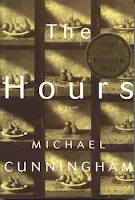
In the course of a mad email exchange with a friend in Pittsburgh about writers and their strategies to creating a prose style that effectively conveyed their stories in all their obvious and more oblique consequences, I was struck by my friend's incidental declaration that "Easy to read and melodious prose is one of the least natural things in the world. " But who wants to read anything that has absolute fidelity to natural speech, whatever "natural" speech happens to be? The ear wants something better formed, and memory wants something that is, well, memorable. What is natural, if anything can be, is a human desire for things that are elegant,balanced, pleasurable to behold, a joy to the senses. What makes these pleasures varies radically in subjective examination, and that is what makes talking about the differences a peculiar pleasure in itself.
"Easy to read and melodious prose" has been the ideal since the creation of the professional writer: it's not far a field to say that humans generally prefer clarity over confusion, and to develop methods, developed through experimentation, to achieve those goals. Because we are a species that's smart enough to demonstrably learn new habits through different kinds of training or learning--whether mechanical or in the acquisition of cultural topsoil-- my thinking is that that a clear style is really a natural expression of human habit, determined however that habit might be. Culture itself, the abstract idea condensed histories gathered along a relentlessly twined strands, is indeed artifice on the face of it, but the formation of culture and it's aesthetic distinctions is hardly unnatural to anything one might think is alien to some wordy definition of man's "natural" state.
It's all natural, in other words: most everything we do, whatever our convolutions as a species carry us to on whatever tide of rhetoric, ideology and religious infamy, is the result behavior that is , of course, animal, species related, but also quite human, quite "natural" .We are not outside of nature, but rather our expressions are quite natural within it's all encompassing sphere, and the development of a musical style in order to express some sense of an individual experience of one's environment, the poetry of the moment, falls handily into the categories of "natural" acts.
More useful, perhaps, might be to consider the word "natural" with regards as to how a writer can create a plausible, believable voice within and without their narrative technique: DeLillo and Hemingway, stylized as they are, created powerful voices that compel response. The styles are connected to ideologies that themselves define a poetic/philosophical superstructures that lay final claim to the progress of history, and it is here where discussion as to the use of the voice becomes "natural" in it’s sound and tone, in it's tropes as it outlines a world view.







